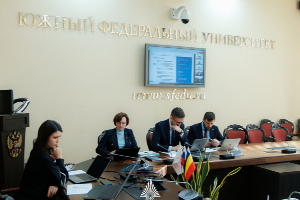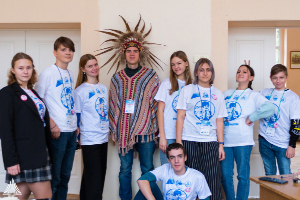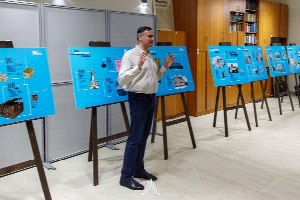
A senior research associate of the Department of Structure and Reactivity of Organic Compounds at the Research Institute of Physical and Organic Chemistry, Southern Federal University, Dr. Alena Starikova together with scientists of the School of Chemistry, University of Melbourne (Australia) and the Department of Chemistry of the University of Colorado (USA) suggested a way to create quantum computers using complexes of cobalt exhibiting “switchable” properties.
The next generation of sensors and quantum computing devices, as well as, the fields of molecular electronics and spintronics in general, require the creation of new materials with “switchable” molecules. It should to be noted, that spintronics is a field of quantum electronics that uses spin as the main physical information carrier, which determines the direction of rotation of the electron.
Molecules that “switch” between two or more physically distinct spin-states can be used to initialize, manipulate, and read information in quantum computers. They are also able to find applications for data storage and are considered for applications of spin filtering and spin switching, i.e. changing the parameters of an electronic circuit.
One of the promising types of “switchable” molecules are metal complexes that tend to exhibit reversible rearrangement without changing the qualitative and quantitative components of the molecule, which consists in intramolecular electron transfer between the transition metal and the redox-active ligand – valence tautomerism (VT). The most common phenomenon of VT occurs in cobalt compounds with 1,2-dioxolene ligands that can change the oxidative state. Theoretical research conducted earlier by Dr. Alyona Starikova has shown that such complexes can be used as two-qubit quantum gates in quantum information processing or as molecular switches in molecular electronics or spintronics.
In conventional computers, the unit of information is a bit that takes the value 0 or 1. Qubits (quantum bits) can be in these two states simultaneously. Due to the unique quantum mechanical phenomenon-quantum entanglement, the effect on one-qubit leads to a change in the state of other qubits, which is the basis for greater performance of quantum computers compared to modern computing systems.
The staff of the School of Chemistry, University of Melbourne (Australia) and the Department of Chemistry of the University of Colorado (USA) synthesized a series of binuclear complexes of cobalt with organic compound bis(dioxolene), to clarify the parameters that affect the nature of spin transitions in the “switchable” molecules.
According to the scientists, this scientific research paves a way to the next generation of complexes with two-stage spin transitions that can find applications in quantum computers.
The results of the joint study have been published in one of the most prestigious scientific journals in chemistry – Journal of the American Chemical Society (Impact Factor: 14.612).
Short link to this page sfedu.ru/news/63353




